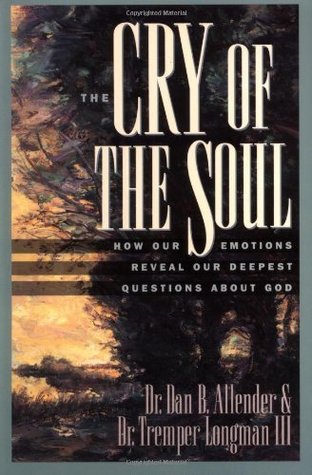More on this book
Community
Kindle Notes & Highlights
Every emotion, though horizontally provoked, nevertheless reflects something about the vertical dimension: our relationship with God.
we are relational beings who are transformed by the mystery of relationship.
Certain emotions, especially anxiety and depression, involve physiological components that can often be treated with medication and other biological intervention. Ignoring the importance of the body involves a tragic misunderstanding about what it means to pursue God.
God feels anger, fear, jealousy, despair, contempt, and shame—and all of these emotions reveal something about His character.
Perhaps a better explanation for why it’s so difficult to feel our feelings is that all emotion, positive or negative, opens the door to the nature of reality. All of us prefer to avoid pain—but even more, we want to escape reality.
The presence of disruptive emotions that feel irrational or out of control is not necessarily a sign of disease, sin, or trauma. Instead, it may be the signal that the heart is struggling with God. Therefore, we must view the ups and downs of our emotional life not as a problem to be resolved, but as a cry to be heard.
11.) Ignoring our emotions is turning our back on reality; listening to our emotions ushers us into reality. And reality is where we meet God.
God who reveals Himself in the midst of our struggle.
The cry of the soul is the suffering of childbirth, the anguished waiting for God to redeem our bodies and souls, the heavens and the earth. The complaint of the soul, “How long?” is a plea, a prayer, an accusation.
Anger revolves around the question, Is God just—will He let the wicked win? Fear centers on the question, Will God protect me?
Every human relationship is haunted by potential abandonment. Our friends could betray us, our children spurn us, our spouse divorce us. Abandonment invades every relationship and mocks intimacy.
Contempt vocalizes the core question, Does God love me, or will He turn away in disgust?
The answer is that each of us must wrestle with the complaint, “How long, O Lord?” Each of our difficult emotions—anger, fear, jealousy, despair, contempt, and shame—opens the door for that question to be exposed and answered through the mystery of God’s involvement with us.
Grace requires us to let go of our god of self-sufficiency.
Our pride compels us to rectify a wrong, but grace exposes our inability to make it better. We are the helpless recipients of kindness.
Shame leads to self-absorption, hiding, and hateful contempt.


